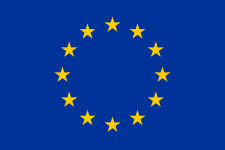
France-Wallonie-Vlaanderen : « FOR SECURITY WITHOUT BORDERS »
Context
The project ALARM aims to develop operational transborder cooperation between civil security stakeholders and the French-Belgian border. This cooperation concerns a wide range of cross-border risks such as those that are common (fire, road accidents…), technological, industrial and natural (floods, landslides…) or those that are manmade (disruption of service networks, fluctuation and mobility).
The consequences of a natural catastrophe or of a technological or industrial accident do not come to a halt at a country’s border. Population catchment area and common risks must not be an obstacle blocking the emergency services from fulfilling their duty in critical situations.
With 620 km of common border, France and Belgium are particularly concerned. The border zone is marked by a strong concentration of industries, the presence of two nuclear sites (Gravelines and Chooz), similarity of natural hazards (floods, landslides, underground cavities), the presence of major communication axes, significant cross-border urbanisation and a high population density (324 inhabitants per km2).
Objectives
In the face of shared challenges, regulations and procedures and even the language differences from state to state and region to region, how can communication be improved to anticipate risks and to intervene in a concerted and effective way, especially in emergency situations?
It is these questions that the project ALARM seeks to answer via 3 routes:
1. Shared analysis of existing risks
- Creation of a platform for exchanging communal information in order to develop a “daily” operating cooperation between French and Belgian firefighters.
- Implementation of cross-border risk mapping.
2. Learn to collaborate daily in order to better react to emergency situations
- Expansion of a cross-border masterplan of analysis and coverage of risks (STACR) that will allow French and Belgian firefighters to take action together in emergency situations.
- Organisation of exercises and large scale training.
3. Promote a citizens’ culture of civil security.
- Organisation of training and actions to make known the destination of emergency services and that of those elected in regards to developing a common culture of cross-border assistance.
Activities and the role of Efus
The project ALARM will establish a strategic masterplan of analysis and intervention, not limited to only catastrophes and major accidents but also taking into account all natural, industrial and human-provoked accidents that can occur on a border zone.
Within the project ALARM, the role of Efus is to raise awareness among mayors (in France and in Belgium) about the importance of devising a communal plan of safeguarding (called the communal emergency plan of intervention in Belgium) and to regularly update it. With this in mind, Efus will also make known to their elected representatives their civil responsibility and the duty to penalise in the event that a crisis occurs due to a community’s lack of updating and implementation of the communal safeguarding plan.
Starting from the end of 2018, Efus, in partnership with the European Metropole of Lille (MEL) and other members of the working model, dedicated to raising awareness for local authorities, will organise seminars of accompaniment to communities that wish to initiate a local safeguarding Plan. These seminars will allow cities engaged in the reflection to exchange with cities having already implemented the local safeguarding Plan.
Partners
The project gathers 26 French, Walloon and Flemish partners engaged in border-work: institutions, operational and scientific service technicians, experts of the implementing of civil security policies. The departmental services of fire and emergency of the North (SDIS 59) is the leader of the project.

Duration
January 2017 – September 2021
Contacts
Martí Navarro Regàs, programme manager – navarroregas@efus.eu
Yves Van de Volet, Associated expert

The project is part of the European territorial cooperation program Interreg V France-Wallonie-Vlaanderen. ALARM is 50% financed by the European Regional Development Fund (ERDF) of the European Union (2017-2020).







